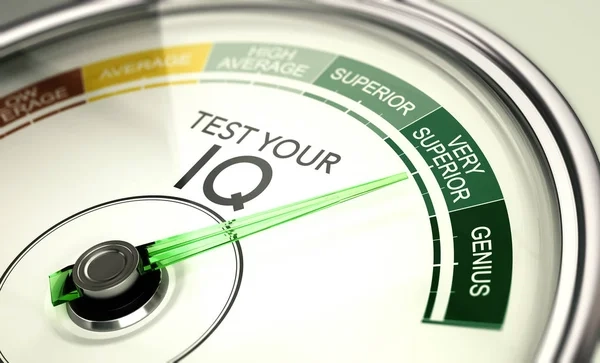
Shocking Truth Revealed: Even One Drink a Day Could Increase Your Cancer Risk!
2025-01-10
Author: Ming
Introduction
As we step into a new year, many individuals are reassessing their choices, particularly concerning alcohol consumption. A recently released government report provides a startling rationale for those considering a "dry January."
New Guidelines and Advisory
New guidelines highlight that consuming just 1-2 alcoholic drinks daily can significantly ramp up the risk for several types of cancer. This prompted U.S. Surgeon General Dr. Vivek Murthy to issue a vital advisory on January 3, 2025, emphasizing the crucial link between alcohol and cancer. The report not only sheds light on the existing evidence but also advocates for implementing new cancer warning labels on alcoholic beverages akin to those currently mandated for tobacco products.
Public Awareness
Surprisingly, while the connection between alcohol and cancer isn't a novelty within the scientific community, awareness remains shockingly low. A survey conducted by the American Institute for Cancer Research in 2019 revealed that fewer than half of Americans recognize alcohol as a cancer risk factor. Despite its standing as the third-most preventable cause of cancer in the United States (following tobacco and obesity), the dangers of alcohol are often overshadowed by its association primarily with liver diseases, such as cirrhosis.
Cancer Statistics
According to the report, alcohol is implicated in around 100,000 cancer cases and contributes to roughly 20,000 cancer-related deaths every year. Notably, it plays a significant role in the development of various cancers, including breast, liver, colorectal, mouth, throat, esophagus, and voice box cancers. Alarmingly, alcohol-related cancer fatalities exceed deaths from alcohol-induced traffic accidents annually.
Surgeon General's Advisory
The Surgeon General's advisory pushes for immediate action. The report suggests substantial updates to alcohol warning labels that have remained unchanged since 1988. Notably, the link between alcohol consumption and breast cancer is particularly concerning, given the increasing alcohol use among women.
Misconceptions About Drinking
It's a common misconception that only heavy drinkers are at risk. In reality, data reveal that 25% of cancer cases associated with alcohol consumption come from individuals categorized as moderate drinkers, who consume fewer than two drinks daily. This underlines the necessity for everyone who drinks regularly, regardless of quantity, to be informed about the associated risks.
Scientific Evidence
Delving into the science, the relationship between alcohol intake and cancer has been evident for decades. In previous reports, including one from 2016, the Surgeon General discussed addiction broadly, but the new report hones in on the cancer risk. It examines various types of evidence, including epidemiological studies and animal research, elucidating how alcohol consumption can lead to cancer through four primary pathways adversely affecting DNA, a crucial component in cell function and growth.
Pathways to Cancer
1. **Acetaldehyde Production**: When the body metabolizes alcohol, it produces acetaldehyde, a compound recognized as a carcinogen since 1999, which can damage DNA and encourage tumor formation. 2. **Reactive Oxygen Species**: Alcohol can generate harmful free radicals that inflict further damage to DNA, proteins, and fats in the body. 3. **Hormonal Influence**: Alcohol consumption can elevate estrogen levels, thus heightening the risk of breast cancer by damaging DNA within breast tissues. 4. **Enhanced Absorption of Carcinogens**: As a solvent, alcohol facilitates the absorption of carcinogenic substances, particularly harmful when combined with other substances like tobacco and e-cigarettes.
Understanding Safe Consumption
You might be wondering, “Is any amount of alcohol truly safe?” Unfortunately, the answer leans towards no. Even moderate consumption can elevate cancer risk for certain types, like breast cancer, throat cancer, and mouth cancer. Each individual's specific risk can vary based on personal genetics, overall lifestyle, and dietary choices, which makes generalizing difficult.
Current Guidelines and Recommendations
The Centers for Disease Control and Prevention (CDC) suggests limiting intake to less than one drink per day for women and two for men, emphasizing moderation and the avoidance of binge drinking. The Surgeon General is advocating for new reconsideration of these guidelines with updated alcohol consumption limits and greater public education on the link between alcohol and cancer.
Concluding Thoughts
Ultimately, the National Institute on Alcohol Abuse and Alcoholism endorses similar advice, underscoring that minimal alcohol consumption is preferable for those who may choose to drink. It is essential to acknowledge the emerging evidence and take proactive steps in habit alterations to prioritize our health and mitigate cancer risk.


 Brasil (PT)
Brasil (PT)
 Canada (EN)
Canada (EN)
 Chile (ES)
Chile (ES)
 Česko (CS)
Česko (CS)
 대한민국 (KO)
대한민국 (KO)
 España (ES)
España (ES)
 France (FR)
France (FR)
 Hong Kong (EN)
Hong Kong (EN)
 Italia (IT)
Italia (IT)
 日本 (JA)
日本 (JA)
 Magyarország (HU)
Magyarország (HU)
 Norge (NO)
Norge (NO)
 Polska (PL)
Polska (PL)
 Schweiz (DE)
Schweiz (DE)
 Singapore (EN)
Singapore (EN)
 Sverige (SV)
Sverige (SV)
 Suomi (FI)
Suomi (FI)
 Türkiye (TR)
Türkiye (TR)
 الإمارات العربية المتحدة (AR)
الإمارات العربية المتحدة (AR)